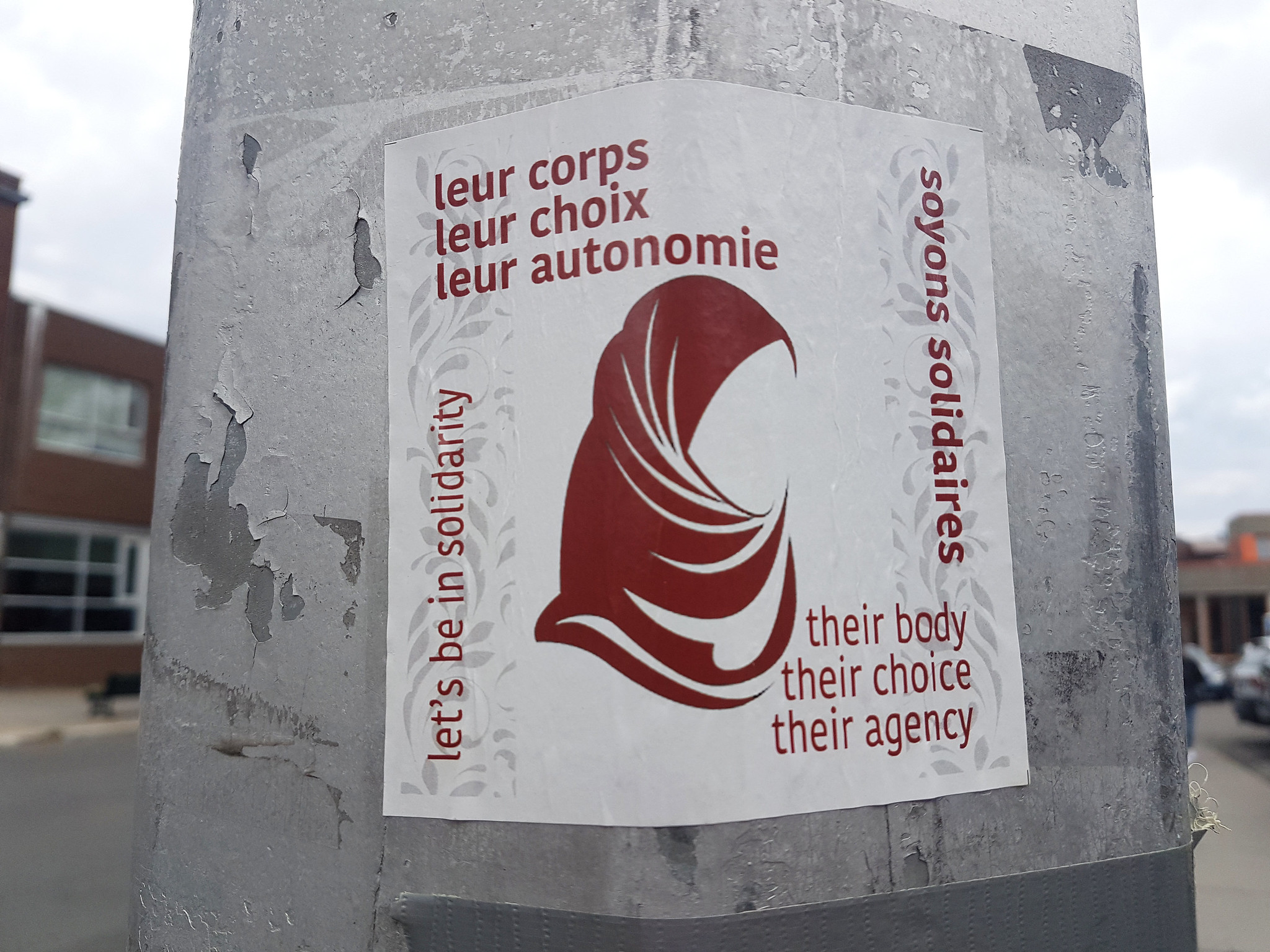
Elham Asaad Buaras
Canadian Muslim organisations have condemned a new report urging Quebec to extend its religious symbols ban to publicly funded daycares. The 300-page study, released on August 26, has sparked outcry from groups such as the National Council of Canadian Muslims (NCCM), who argue it disproportionately targets Muslim women and restricts their religious freedoms and economic opportunities.
The NCCM is already challenging Quebec’s 2019 secularism law, Bill 21, in the Supreme Court. The law bars most public servants—including teachers, janitors, and healthcare workers—from wearing religious symbols such as Muslim headscarves, Sikh turbans, Christian crosses, or Jewish kippahs while on duty.
The government-commissioned report recommends extending the ban to subsidised daycare staff, phasing out public funding for private religious schools, and requiring CEGEP (Quebec’s pre-university and technical colleges) students to keep their faces uncovered. Its authors argue these measures are necessary to uphold secularism and curb religious influence in public spaces.
Muslim leaders and human rights advocates have denounced the proposals as discriminatory. NCCM Chief Executive Officer Stephen Brown called the report “asinine” and an infringement on religious freedoms.
“We really have to ask some serious questions about the legitimacy of their report,” Brown said. “At a time when Quebecers are struggling with the cost of living, inflation, and other challenges, this committee has chosen to prioritise going after children in school and Muslim janitorial staff.”
Brown also warned that extending the ban to daycare workers could worsen discrimination and deepen Quebec’s educator shortage. “There are already thousands of teaching positions unfilled across the province,” he said. “Instead of addressing this self-created staffing crisis, the report suggests exporting the problem to daycares.” He vowed to continue the legal challenge alongside the Canadian Civil Liberties Association and a Quebec-based nurse.
The advisory committee was co-chaired by former Liberal MNA Christiane Pelchat and Université de Sherbrooke law professor Guillaume Rousseau, both of whom have defended Bill 21 in court. The panel consulted more than 500 groups and 181 municipalities before issuing 50 recommendations.
Pelchat defended the law, claiming it has been successful since its adoption in 2019. “There was no catastrophe. On the contrary, things are going rather well. But it has to be reinforced,” she said.
At an August 27 press conference, Brown criticised the exclusion of religious groups from consultations, questioning the report’s impartiality. “Neutrality isn’t the absence of opinion; it’s the government imposing uniformity by stripping rights from religious people,” he stated.
The Canadian Council of Muslim Women (Montreal) separately warned the report targets Muslim daycare workers. President Farida Mohamed said, “Our rights and economic freedom are being violated.”
Anne Dionne, second vice-president of the Centrale des syndicats du Québec (CSQ), which represents daycare and education workers, added the measures could worsen staff shortages and distract from the core mission: educating and caring for children aged zero to five.
Human rights lawyers also raised alarms. Pearl Eliadis, Associate Professor at McGill University, warned that many of the report’s proposals could violate the Constitution of Canada and the Quebec Charter. She estimated about 75 per cent could face immediate constitutional challenges and suggested the government may rely on the notwithstanding clause to bypass legal hurdles.
The report follows a five-month review launched by Secularism Minister Jean-François Roberge in March 2025, citing concerns about religious favouritism and alleged “toxic behaviour” in some Montreal schools. While some proposals—such as guaranteeing universal access to abortion services—are broadly supported, critics argue the overall framework risks oppressing religious minorities rather than promoting secularism.
The Quebec government, led by Premier François Legault, has not yet indicated which recommendations it will adopt. Meanwhile, ongoing challenges to Bill 21 remain before the Supreme Court.
Photo: A poster sticker in Montreal referencing Quebec’s Bill 21 secularism law, May 20, 2019. (Credit: Wikimedia)


